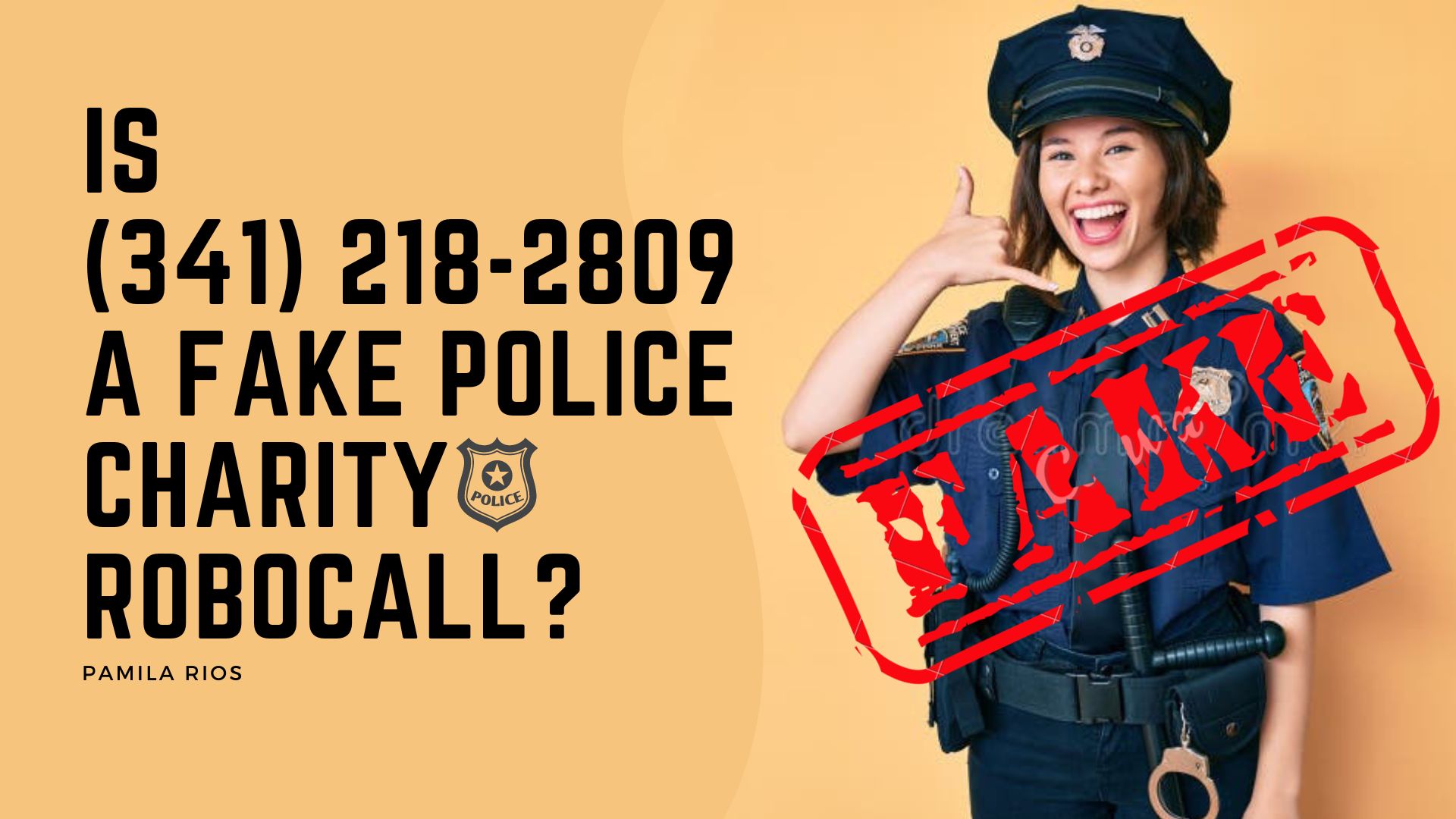In a world where technology connects us, it also opens the door to various threats and scams. One such growing concern is the surge in fake police charity robocalls, with the number 3412182809 standing out as a notorious example.
Introduction
In recent times, there has been an alarming increase in fraudulent activities exploiting the goodwill of people through robocalls. These automated calls are designed to deceive individuals into believing they are contributing to a legitimate cause. One particular scam that has gained notoriety is the fake police charity robocall associated with the number 3412182809.
Understanding the Threat
Before delving into the specifics of the fake police charity robocall, it’s crucial to understand the broader threat posed by such scams. Robocalls, automated phone calls using pre-recorded messages, have become a prevalent tool for scammers. These calls often target unsuspecting individuals, seeking to manipulate them emotionally or financially.
The Deceptive Tactics of 3412182809
The number 3412182809 has been linked to a particularly cunning fake police charity robocall. Scammers employ deceptive tactics, playing on the emotions of recipients by claiming to support law enforcement agencies. These calls often create a false sense of urgency, urging individuals to make immediate donations for a fabricated cause.
Impact on Society
The consequences of falling victim to fake police charity robocalls extend beyond the financial loss. Individuals who believe they are contributing to a legitimate cause may experience a sense of betrayal, eroding trust in charitable donations. This impact reverberates through society, affecting the willingness of people to support genuine charities.
Identifying Fake Police Charity Calls
To protect oneself from falling victim to such scams, it is essential to recognize the signs of fake police charity calls. Be wary of unsolicited calls claiming urgent financial needs for law enforcement. Verify the legitimacy of the charity by researching it independently before making any donations.
The Legal Response
Addressing the issue of fake police charity robocalls requires a robust legal framework. Existing laws against robocall scams are in place, but enforcing them poses significant challenges. Legal authorities and regulatory bodies are working to strengthen these laws to better combat fraudulent activities.
Protecting Yourself
Individuals can take proactive steps to protect themselves from falling prey to robocall scams. Implementing call-blocking apps, being cautious about sharing personal information, and reporting suspicious calls contribute to personal safety. Reporting incidents is crucial for building a database to identify and track fraudulent numbers like 3412182809.
Technological Solutions
Advancements in technology play a pivotal role in countering robocall scams. Innovative solutions, such as AI-powered call analytics and machine learning algorithms, contribute to the detection and prevention of fraudulent activities. These technological developments significantly reduce the impact of fake charity robocalls.
The Role of Telecommunication Companies
Telecommunication companies bear a responsibility in the fight against robocall scams. Collaborative efforts between service providers, regulatory bodies, and law enforcement agencies are essential to identify and block numbers associated with fraudulent activities like the notorious 3412182809.
Public Awareness Campaigns
Raising public awareness is a key strategy in combating fake police charity robocalls. Educational campaigns highlighting common scam tactics, promoting skepticism toward unsolicited calls, and providing resources for verifying charities contribute to a more informed and vigilant public.
Government Initiatives
Governments worldwide are taking initiatives to address the menace of robocall scams. Collaborative efforts between governmental bodies, law enforcement, and the private sector aim to create a comprehensive strategy against fraudulent activities. These initiatives underscore the importance of collective action.
Real-life Scenarios
Examining real-life scenarios of individuals affected by fake police charity robocalls brings the issue into sharper focus. Personal accounts serve as a reminder of the real impact of scams, emphasizing the need for individuals, communities, and authorities to work together in combating these threats.
Staying Informed
In the ever-evolving landscape of scams, staying informed is crucial. Regular updates on new scam tactics, emerging threats, and resources for self-protection empower individuals to remain vigilant against potential dangers.
Testimonials and Stories
Sharing testimonials and stories of individuals who successfully avoided falling victim to robocall scams provides inspiration and guidance. These accounts highlight the power of awareness, preparedness, and the impact of collective efforts in safeguarding against fraudulent activities.
Conclusion
In conclusion, the prevalence of fake police charity robocalls, exemplified by the number 3412182809, is a concerning issue that demands attention. Staying informed, adopting technological solutions, supporting government initiatives, and fostering public awareness are crucial components in the fight against such scams. By working together and remaining vigilant, we can create a safer digital environment.
FAQs
- How can I identify a fake police charity robocall?
- Look for unsolicited calls claiming urgent financial needs for law enforcement.
- Verify the legitimacy of the charity independently before making any donations.
- What legal measures are in place against robocall scams?
- Existing laws address robocall scams, but enforcement challenges persist.
- Authorities are working to strengthen these laws for better combat.
- How do technological solutions contribute to countering robocall scams?
- AI-powered call analytics and machine learning algorithms help detect and prevent fraudulent activities.
- These advancements significantly reduce the impact of fake charity robocalls.
- What role do telecommunication companies play in fighting robocall scams?
- Telecommunication companies collaborate with regulatory bodies and law enforcement to identify and block fraudulent numbers.
- How can I report suspicious calls and contribute to combating robocall scams?
- Use call-blocking apps to report and block suspicious numbers.
- Reporting incidents is crucial for building a database to identify and track fraudulent numbers.
Read more: click here
